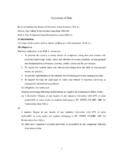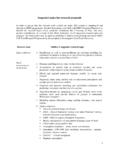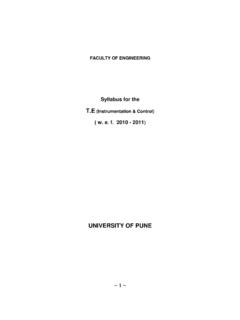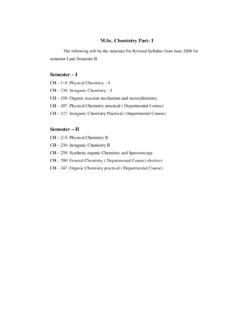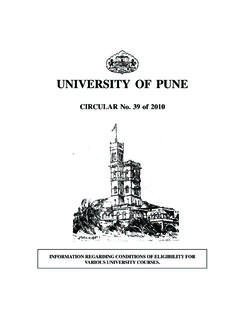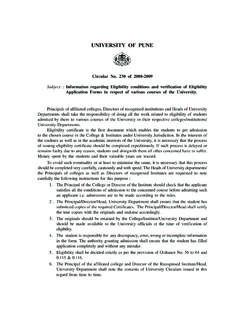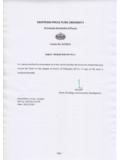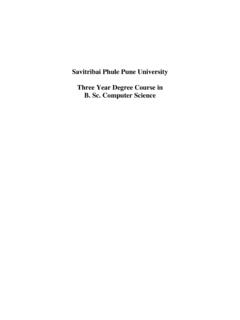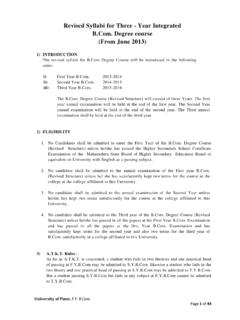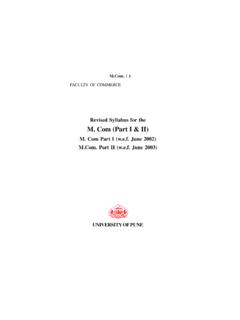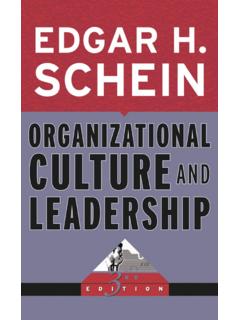Transcription of UNIVERSITY OF PUNE
1 UNIVERSITY OF pune . FACULTY OF MANAGEMENT. Revised Syllabus for the Post-Graduate Diploma In Business Management (PGDBM). ( 2008-2009). (Leading to Master in Business Studies in Third Year). DBM Year I : From Academic year 2008-2009. DBM Year II : From Academic year 2009-2010. (I) NAME OF THE COURSE. The name of the course is Post-Graduate Diploma In Business Management (PGDBM). (II) ELIGIBILITY FOR ADMISSION. A student seeking admission to this course must have passed any one of the following qualifications: 1. Bachelor's Degree of any Statutory UNIVERSITY or any other recognized Foreign UNIVERSITY .
2 2. Any Diploma awarded by Board of Technical Education of any State Government or Central Government (Post SSC three years' Diploma with 2 years post diploma experience or Post HSC two years' Diploma with one year Post-Diploma experience). (III) STRUCTURE OF THE COURSE. The course will have Four Semesters; each Semester consisting of 5 papers each. In Semester IV, the student shall be examined for a special subject consisting of two papers pertaining to any one of the following functional areas of management. Group A-Marketing Management. Group B-Financial Management.
3 Group C-Computer Management. Group D-Production & Materials Management. Group E-Human Resource Management. Course Outline for Post-Graduate Diploma in Business Management (PGDBM). Leading to Master in Business Studies (MBS) course Semester I. Course Subject Title Examination Marks Code 101 Principles and Practices of External 100. Management and Organizational Behaviour 102 Management Accounting External 100. 103 Managerial Economics External 100. 104 Principles of Marketing Internal 50. 105 Basics of Communication Internal 50. Skills Total 400 Marks Semester II.
4 Course Subject Title Examination Marks Code 201 Marketing Management External 100. 202 Financial Management External 100. 203 Operations Management External 100. 204 Materials & Logistics Internal 50. Management 205 Information Technology Internal 50. Total 400 Marks Semester III. Course Subject Title Examination Marks Code 301 Human Resource Management External 100. 302 Management Information External 100. Systems 303 Legal Aspects of Business External 100. 304 Statistical and Quantitative Internal 50. Techniques 305 Research Methodology Internal 50. Total 400 Marks Semester IV.
5 Course Subject Title Examination Marks Code 401 Management Control Systems External 100. 402 Specialization I External 100. 403 Specialization II External 100. 404 Economic Environment of Internal 50. Business and Environmental Management 405 Project Report Internal 50. Total 400 Marks (IV) ASSESSMENT AND STANDARD OF PASSING. 1. The papers marked as External' are meant for external evaluation by the UNIVERSITY and carry 100 marks each paper. 30% of such marks are reserved for internal evaluation and 70% of such marks are reserved for UNIVERSITY evaluation based upon the written Examination.
6 Papers marked as Internal' are meant for the internal evaluation by the individual Institute. 2. Marks for the internal evaluation must be communicated by the Institute to the UNIVERSITY before the commencement of relevant Semester Examination. 3. The minimum standard of passing will be 40 percent marks in each paper for internal as well as external heads. 4. At the end of semester IV, the student is expected to complete the Project Report of not less than 5000 words and submit a copy of the Report to the Director of the Institute before 31st December of the Second Year.
7 The Report must be based upon the first hand study and some management aspect of any organization. The Report will be internally evaluated by the Faculty of the subject and the marks will be communicated by the Director to the UNIVERSITY before the commencement of semester IV Examination. No student can appear for Semester IV. Examination unless he submits the Project Report. (V) BACKLOG. The student will be allowed to carry maximum backlog of 10 (ten) heads of passing from any one or more semesters. (101) Principles and Practices of Management and Organisational Behaviour OBJECTIVES: 1.
8 To understand the evolution of management thought. 2. To expose the students to fundamental concepts of management and its processes in organizations. 3. To introduce the basic concepts and theories underlying individual behaviour. 4. To understand individual behaviour in groups, dynamics of groups and team building. 1] Total marks for external paper : 70 PPM : 35 OB : 35. 2] Internal marks : 30. Sr Topic session Weightage Books . %. Principles and practices of management 1 Basic Concepts of Management 2 10% 1,2,3,4. Definition , Need and scope .Different schools of management Behavioural , Scientific , Systems , Contingency 2 Management theories 2 15% 1,2,3,4.
9 - Taylor - Henry Fayol - Elton Mayo 3 Managerial skills and functions 1 5% 1,2,3,4. Levels of management 4 Functions of management 8 15 % 1,2,3,4. A] Planning Def. , Nature , Importance , steps , limitations , MBO. B] Organising - Def. , Nature , Importance , principles , centralization . de centralization Org. structures Z. Line & staff , functional , product , matrix , geographical , customer , virtual , boundary less C] Leading - Nature and scope D] Staffing Def. , Nature , Importance , steps E] Decision making - Def. , Nature , Importance , steps F] Controlling - Def.
10 , Nature , Importance , steps-Z. Techniques Organisational Behaviour 5 OB Defn. , Scope , Importance , 3 10% 5,6,7,8. Concepts of OB , Models of OB Autocratic Collegial , Custodial Supportive , SOBC. 6 Motivation Defn. Importance 3 10 % 5,6,7,8. A] Motive Characteristics Types primary & secondary B] Theories of motivation - Mc Gregor - Maslow, Herzberg C] Overview of moral short note 7 Group , Group Dynamics and team building 2 10% 5,6,7,8. - Theories of group formation - Formal and informal groups -Importance of team building 8 Conflict Definition , traditional Vs Modern view of 3 5% 5,6,7,8.
